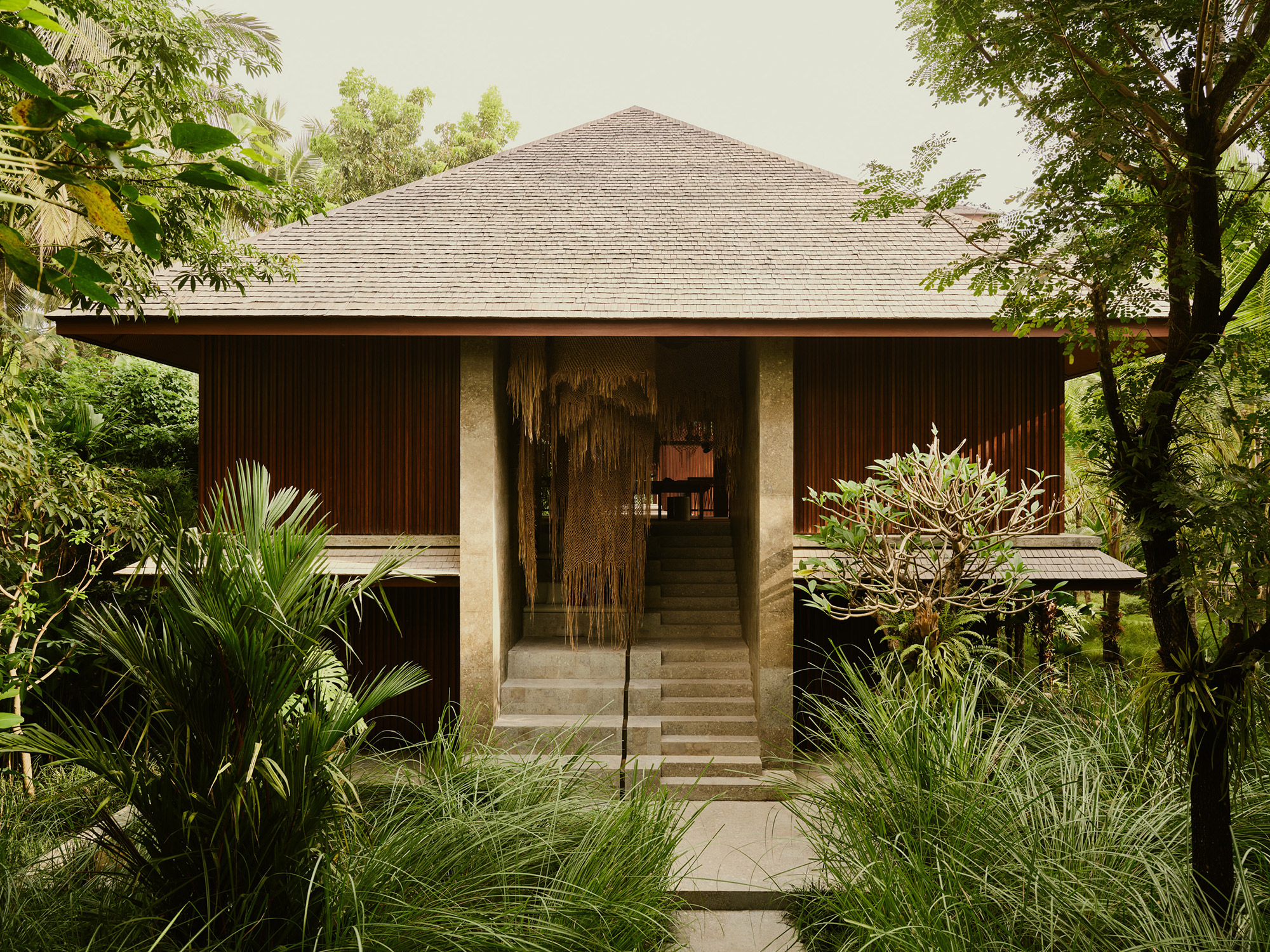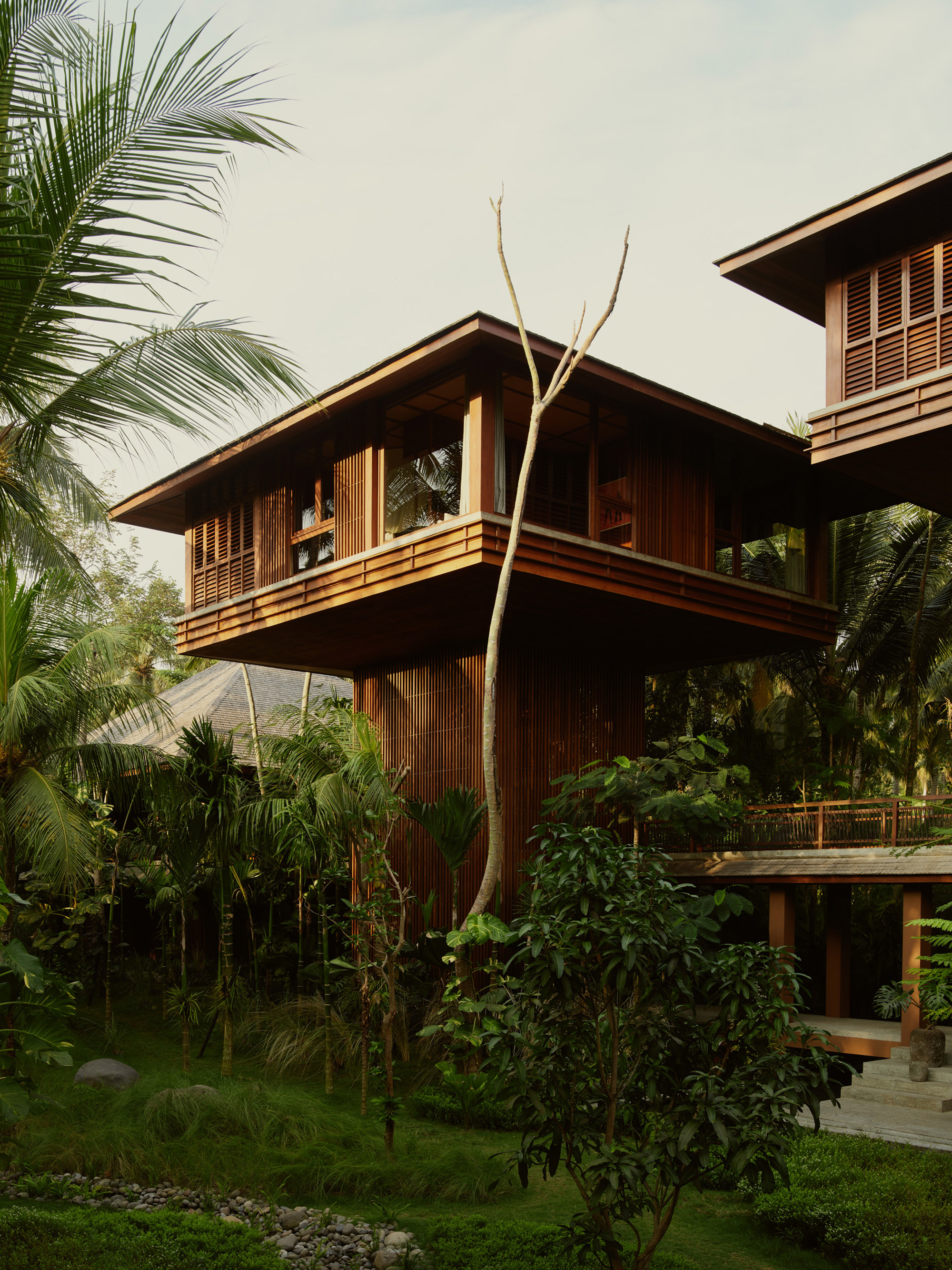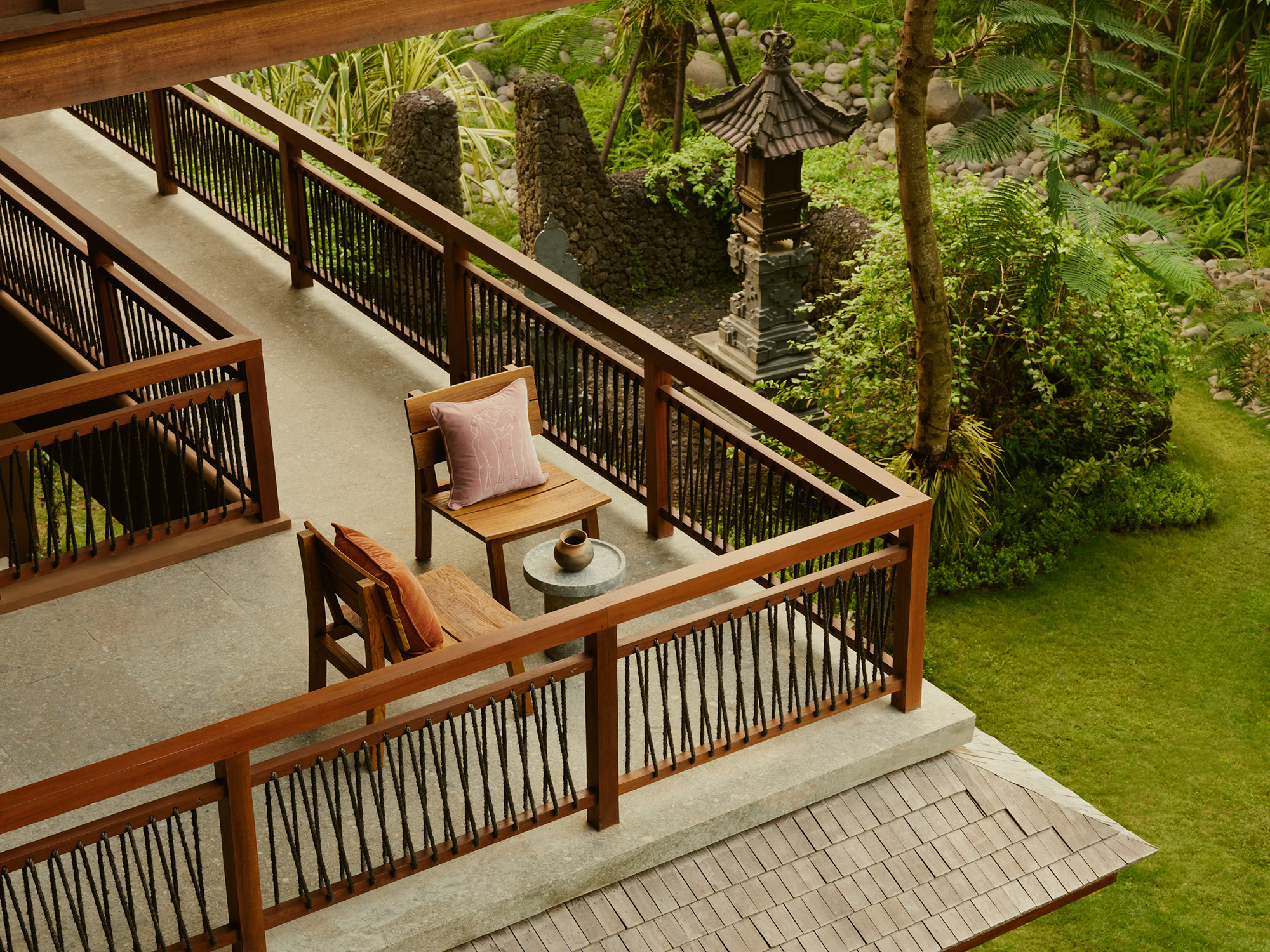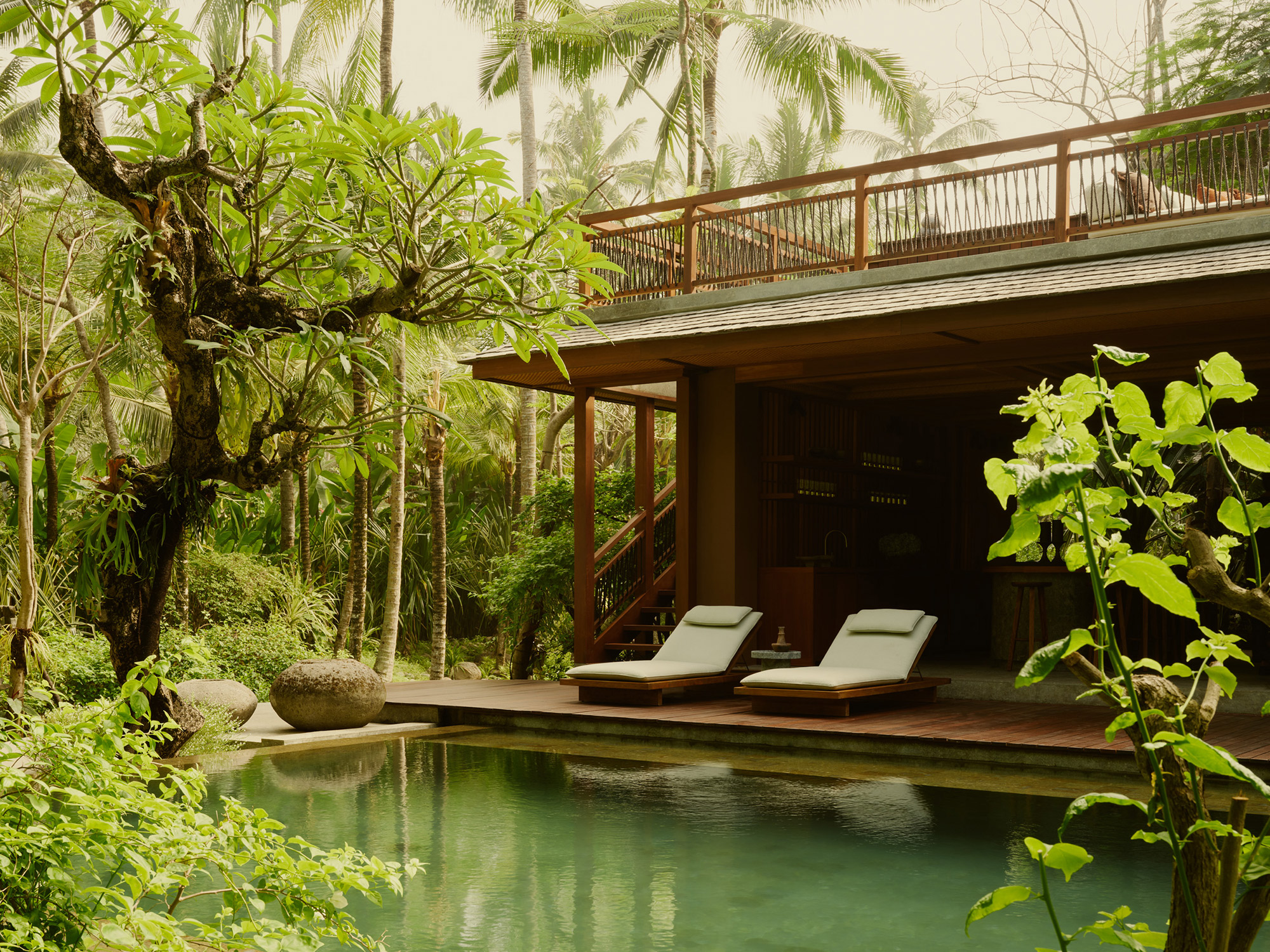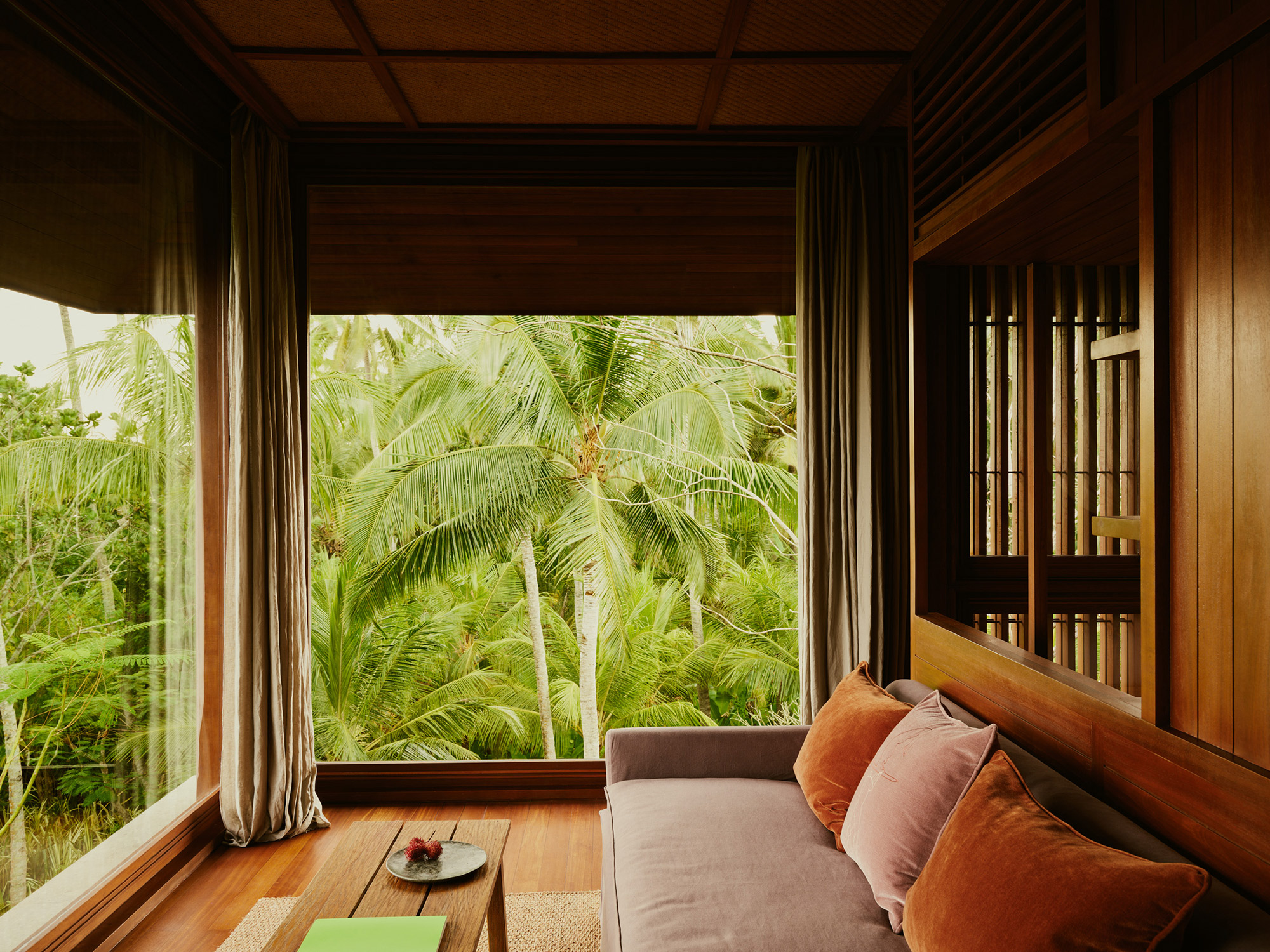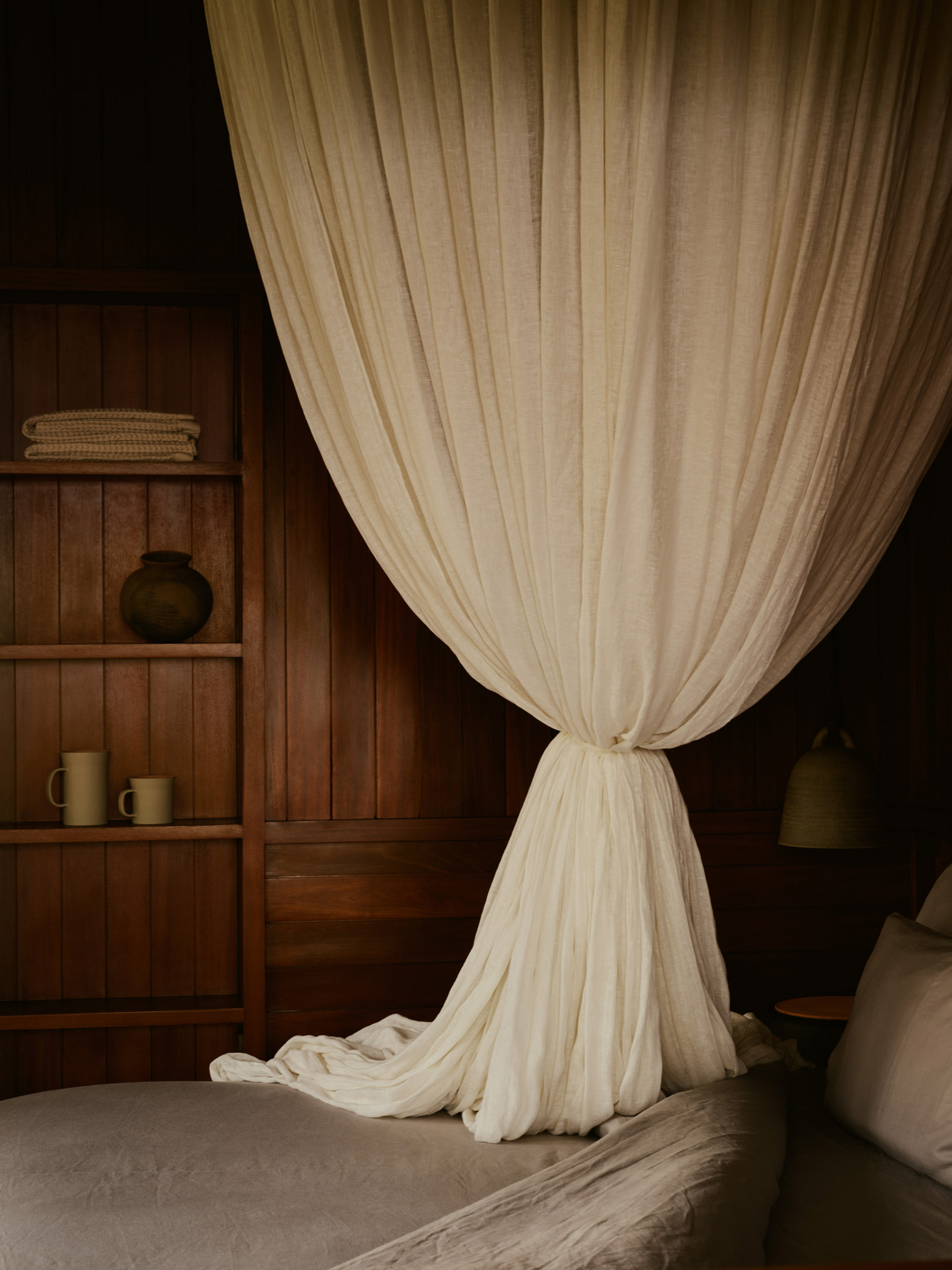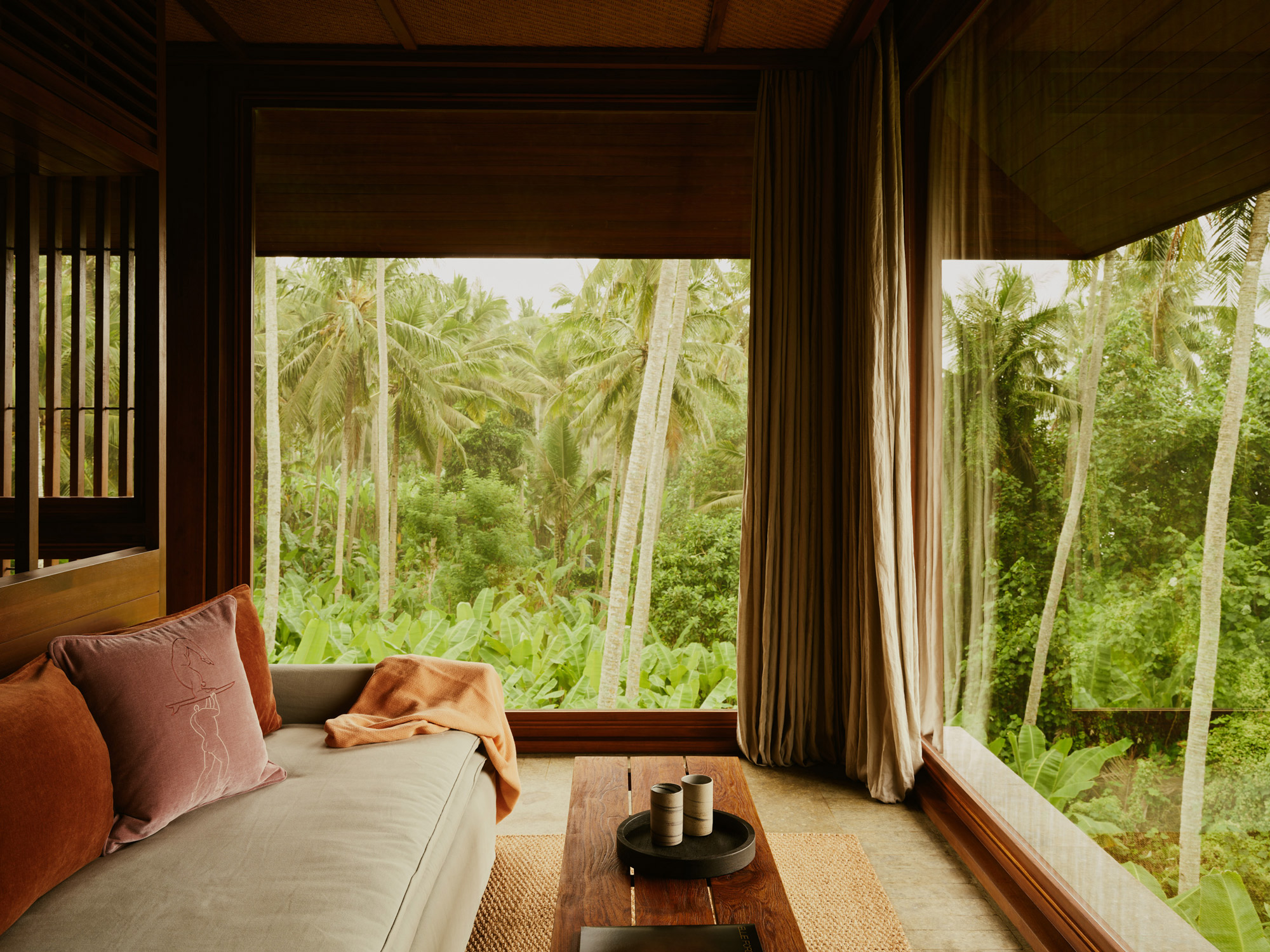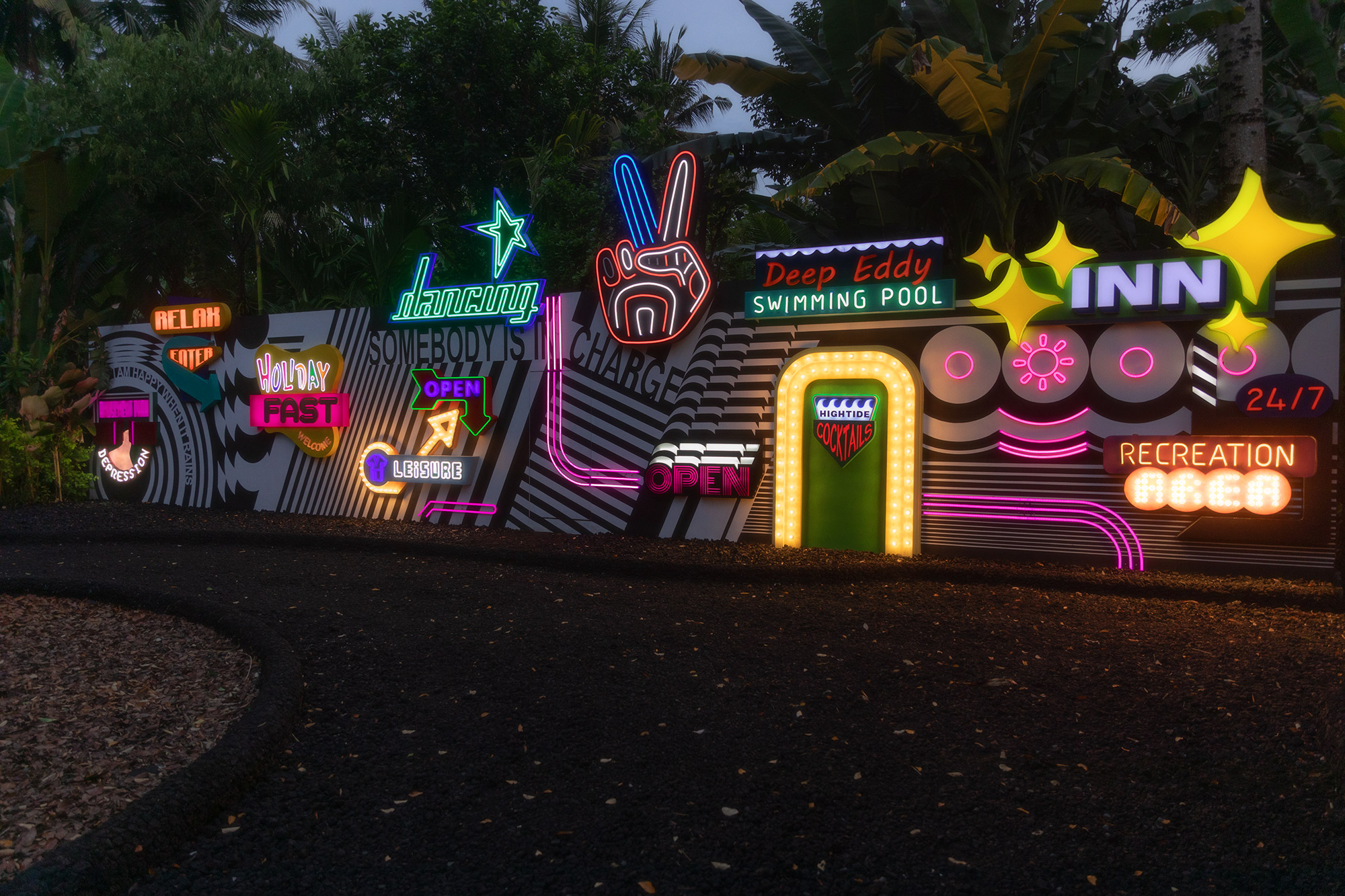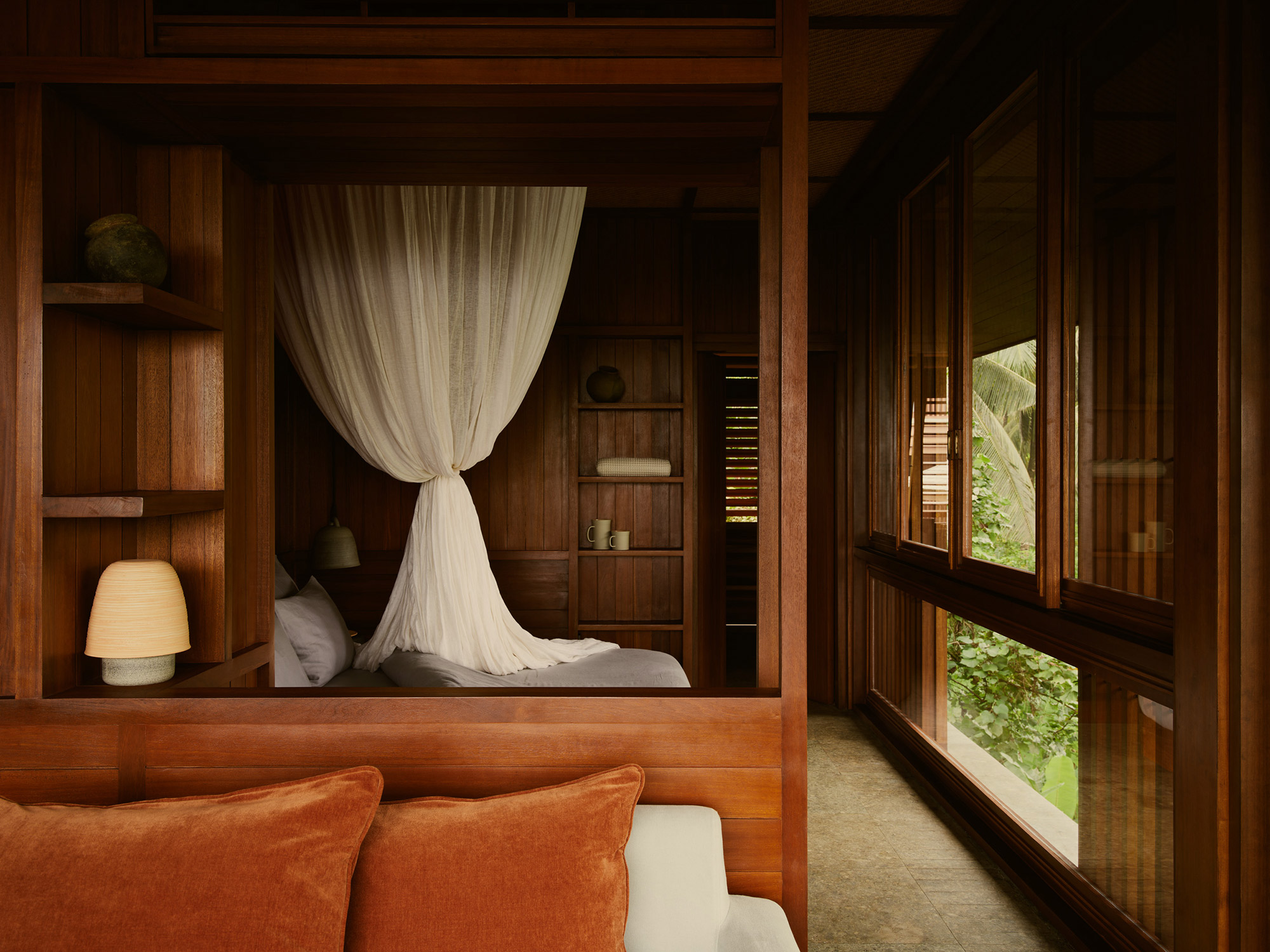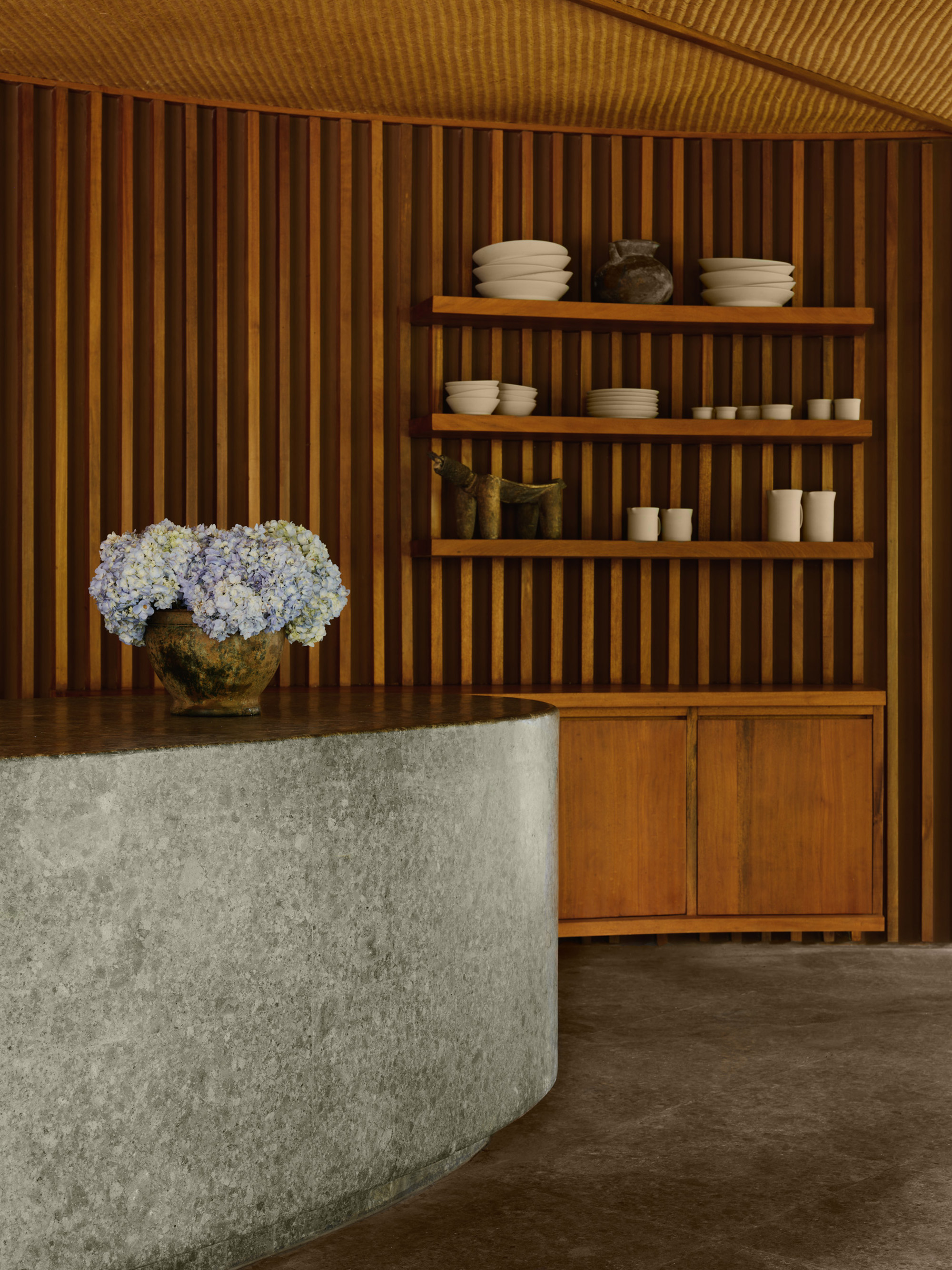A tranquil retreat with tree house-like suites built in a tropical forest in Bali.
Founded in 2012 in Frankfurt, Germany by a group of friends, Linderberg is a hospitality company that opens community-focused guest houses where people can come together and share more meaningful traveling experiences. Ten years, four hotels, and several awards later, the company has opened its fifth guest house and its first sustainable hotel in Indonesia: Lost Lindenberg. Located on the west coast of Bali, in the quiet village of Pekutatan, Lost welcomes guests in a tranquil, pristine natural site with its own surf spot. Alexis Dornier and Studio Jencquel collaborated on the architectural design, with Studio Jencquel also completing the interiors and the landscaping.
Right from the start, guests discover that this is not an ordinary Bali hotel. A large neon installation welcomes travelers with bright colors and upbeat messages that clash with the surrounding jungle. Golden Lion winning artist Tobias Rehberger created the piece as a way to stage a “ritual farewell” from urban spaces. A concealed door leads guests to the retreat itself. The architectural design aims to create a magical experience with staggered towers that elevate the rooms up to the jungle treetops. Resembling a small village, the towers feature connecting walkways raised above the ground and several common areas. Traditional and vernacular architecture also informed the design. The team used sustainably-sourced wood for the retreat, as well as Bali green stone and brass accents.
Warm and cozy interiors that open to spectacular views.
Completed by Studio Jencquel, the interiors are both warm and elegant. The eight rooms boast locally sourced materials and objects. Apart from tropical hardwood, teak, and sustainable linen fabrics, the interiors also feature lava stone surfaces and river stones. Like the architecture, the interior designs tells a story.
“The wooden blinds in the bathroom blur the line between outdoors and indoors, letting the sea breeze in while providing a sense of protection from the hot sun. Panoramic windows allow us to spot boats passing by on the horizon. The furniture, the lamps, the ceramic tableware, and almost all the accessories in this project were custom designed by Studio Jencquel. The underlying theme of melancholy and darkness is strongly felt throughout: a neon scar on my sweet melancholy,” says Max Jencquel, Studio Jencquel.
All eight tree house rooms offer glimpses of the waves. However, two suites open directly out to the ocean while the other six rooms overlook the jungle and temples. The rooms also display a collection of contemporary art and photography – a signature feature in all Lindenberg hotels. Local Indonesian antiques and items like baskets and vases complement the artworks.
Guests can dine in the Lost restaurant, which in true Lindenberg fashion serves only plant-based meals. The seasonal ingredients come from either the hotel’s own gardens or from nearby organic permacultures. A seven-meter-long dining table invites guests to share meals and cocktails over good conversation. Lost also has a jungle spa, built in the style of a traditional timber gladak. Outdoors, there’s a large swimming pool and lounge areas, along with a sundeck, a beach deck and a yoga area.
Lush plants that enhance the retreat’s architecture and outdoor spaces.
The landscape design enhances the architectural design. The suspended walkways link the path that starts in the garden and then enters the building with the trail that leads to the black lava sand beach. Passing through the tropical forest, this path immerses guests in lush greenery that includes Baobab, banana, and Bodhi trees as well as ferns and vibrant bromeliads and heliconias. Around the outdoor dining and lounge areas, Studio Jencquel planted lady of the night flowers that fill the air with a sweet, fragrant scent.
As for activities, guests can enjoy surfing on a private beach, with surf lessons included in the room rates. Other activities include coconut harvesting, beach bonfires, diving trips, and walks through the jungle. Finally, the hotel operates in an environmentally friendly, low-waste way. Apart from solar panels that cover all energy needs, this retreat also provides locally sourced and fairly produced bath products. Lost opened its doors to travelers on July 15, 2022. Photography © Robert Rieger.



